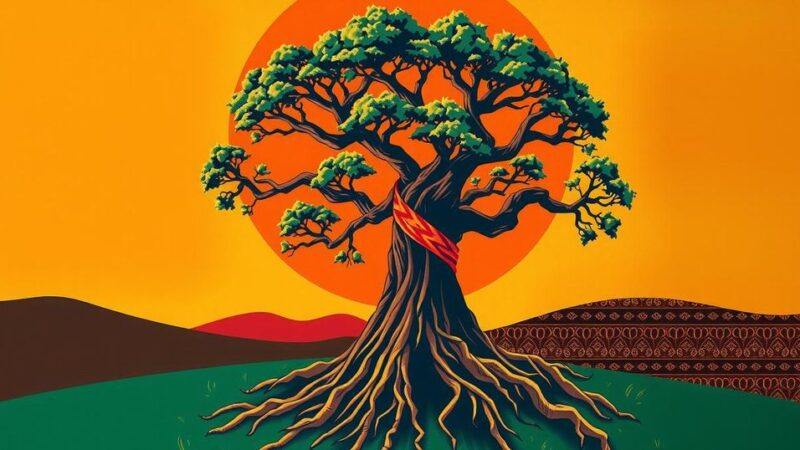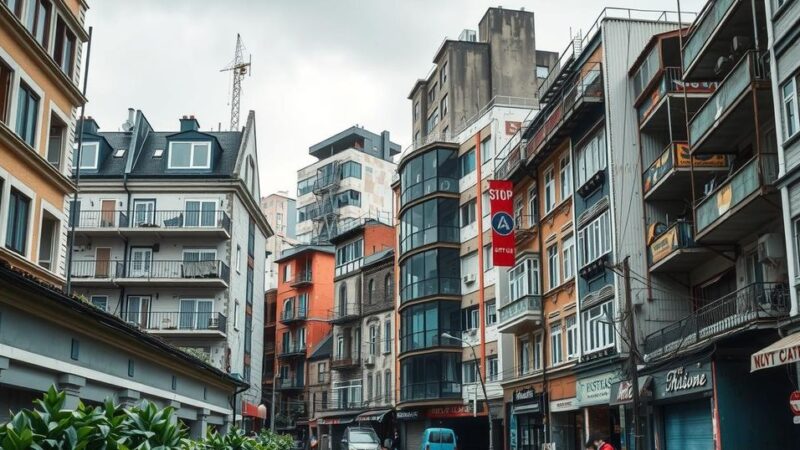The Argentine government has closed the Che Guevara Museum in San Martín de los Andes, claiming it misused state resources to celebrate a controversial figure. This decision comes under President Javier Milei’s administration, highlighting ongoing tensions regarding historical narratives and their implications in contemporary society.
In a surprising decision, the Argentine government has officially announced the closure of the Che Guevara Museum located in San Martín de los Andes. This museum, which was run by the State Workers’ Association (ATE) under an agreement struck during former President Cristina Fernández’s tenure, was deemed by officials as failing to meet its intended purpose. Manuel Adorni, a spokesperson for Javier Milei’s administration, asserted that the museum’s existence was contrary to its original agreements, essentially claiming it glorified a terrorist instead of serving as a historical site.
Adorni elaborated on their reasoning, stating that the National Parks Administration canceled the management contract put in place in 2008, citing that ATE had turned the building into a space devoted to Che Guevara’s legacy. “Far from fulfilling its purpose, ATE transformed that property into a museum dedicated to Che Guevara,” he expressed. He mentioned some activities held at the museum, including a book presentation in Havana and various student visits, which the current government views as further misuse of state resources.
This closure comes in the wake of broader scrutiny over government spending and resource allocation under President Milei’s leadership. Adorni emphasized that the decision highlights a commitment to safeguarding public resources, which he said is a cornerstone of the new administration. “Defending the resources of all Argentinians is an unbreakable principle of the government of President Milei,” he stated, veering into a critical tone regarding the museum’s glorification of Guevara.
Ernesto “Che” Guevara remains a divisive historical figure. While numerous supporters view him as a revolutionary icon, critics argue that he played a significant role in oppression during his time in power. Guevara, originally an Argentine doctor and a key ally of Fidel Castro, held influential positions in the Cuban government post-revolution and sought to expand revolutionary efforts throughout Latin America. However, he is also associated with various human rights abuses, including summary executions during the Cuban Revolution, leading to accusations of him being a ruthless figure.
The closure raises important questions about how historical figures are remembered and celebrated in the public space. Critics of the museum’s closure argue that it eliminates an educational platform, while supporters of the Milei administration insist that it prevents the misuse of public resources to honor a controversial figure. The debate surrounding Guevara’s legacy continues to evolve as more Argentineans become aware of the complexities of his historical relevance.
To summarize, the Argentine government’s decision to close the Che Guevara Museum represents a significant shift in how the state chooses to engage with historical narratives. It highlights the ongoing tension between honoring revolutionary figures while considering their controversial legacies. As the new administration pursues a review of past agreements, public discourse around Guevara’s impact on both Cuba and Argentina remains decidedly polarized, reflecting deep divisions in contemporary societal views.
Overall, this latest development signals a need for a thorough examination of how Argentina navigates its complex historical memory, balancing the ideals of revolution against the realities of state responsibility.
In conclusion, the closure of the Che Guevara Museum by the Argentine government underscores the intensified scrutiny over historical figures and state resource utilization. It reflects a broader initiative under President Milei’s administration aimed at renegotiating historical agreements that do not match current governance principles. The decision could stimulate public debate on Guevara’s controversial legacy and its portrayal in national discourse.
Original Source: en.cibercuba.com






